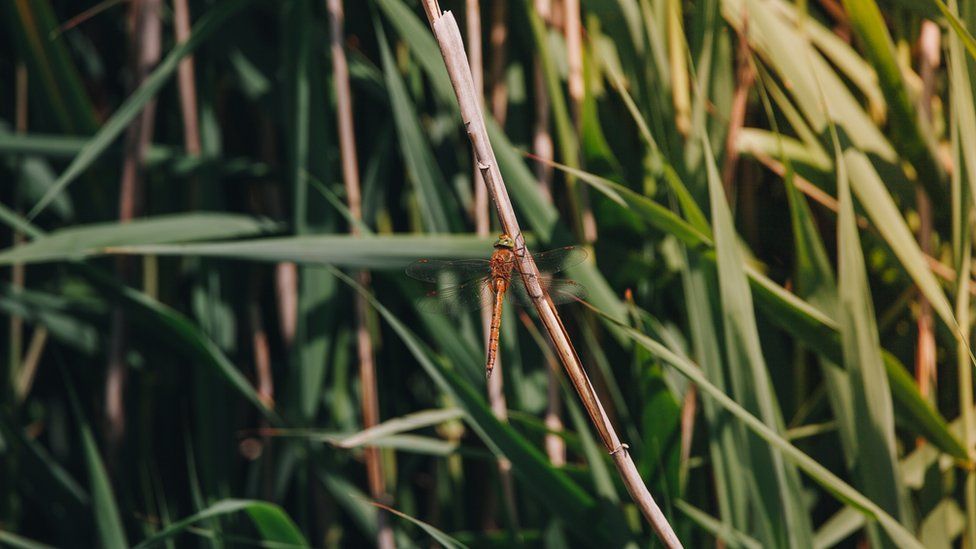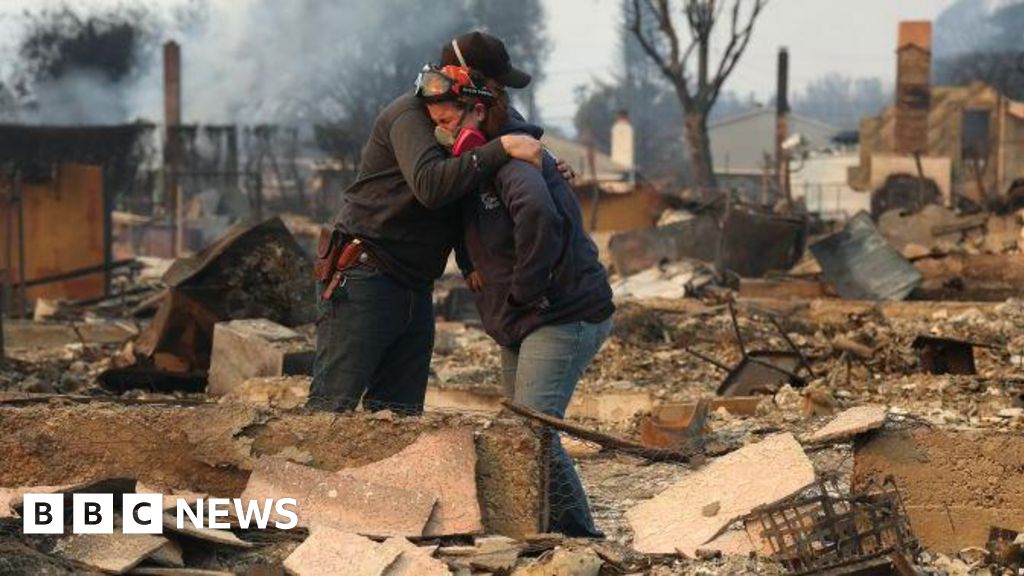 Image source, Tom Barrett
Image source, Tom Barrett
The Norfolk hawker has spread its wings to other regions of the country
A once-rare type of dragonfly may have been aided by climate change, the Broads Authority has said.
The Norfolk Hawker went extinct from the Cambridgeshire Fens in 1893 and, prior to 2013, its breeding sites were in the east of Norfolk and Suffolk.
As average temperatures have risen, it has expanded beyond its former limits.
Sightings and egg-laying have been recorded in Lancashire, South Devon, Dorset and Sussex by the British Dragonfly Society.
Since 1990, the initial spread in East Anglia was westwards from the Broads and southwards along the coastal marshes of Suffolk.
The population that grew around the southern edge of Norwich was helped by water quality improvements and habitat creation in areas of former gravel pits, such as at Whitlingham Broad.
The recent colonisation of Norfolk hawker in counties beyond Norfolk and Suffolk was most likely due to climate change, with habitat changes also playing a significant role, the Broads Authority said.
Image source, Tom Barrett
Image caption,The rare species has been spotted in the north and south of England, with climate change offered as explanation
But Dr Pam Taylor from the British Dragonfly Society urged caution: "Although the hawker's overall range has expanded greatly, there are still huge gaps in its current distribution.
"It will need to infill many of these gaps before the species is truly secure in this country and only time will tell whether it will succeed."
The British Dragonfly Society said it was concerned that ponds, streams and rivers are under threat of future drought and that dragonflies need these wetlands to survive.
The Broads Authority's environment policy adviser Andrea Kelly said: "What appears to be good news about the spread of the Norfolk hawker and its potential relisting as no longer endangered, is in fact a call to action about the significant threats to its precious wetland habitat.
Wetland habitat in particular is under threat and several other species of dragonfly have not been lucky enough to increase their ranges, the wildlife charity said.
Follow East of England news on Facebook, Instagram and X. Got a story? Email eastofenglandnews@bbc.co.uk or WhatsApp 0800 169 1830
Related Internet Links
The BBC is not responsible for the content of external sites.
 (1).png)
 10 months ago
16
10 months ago
16


















